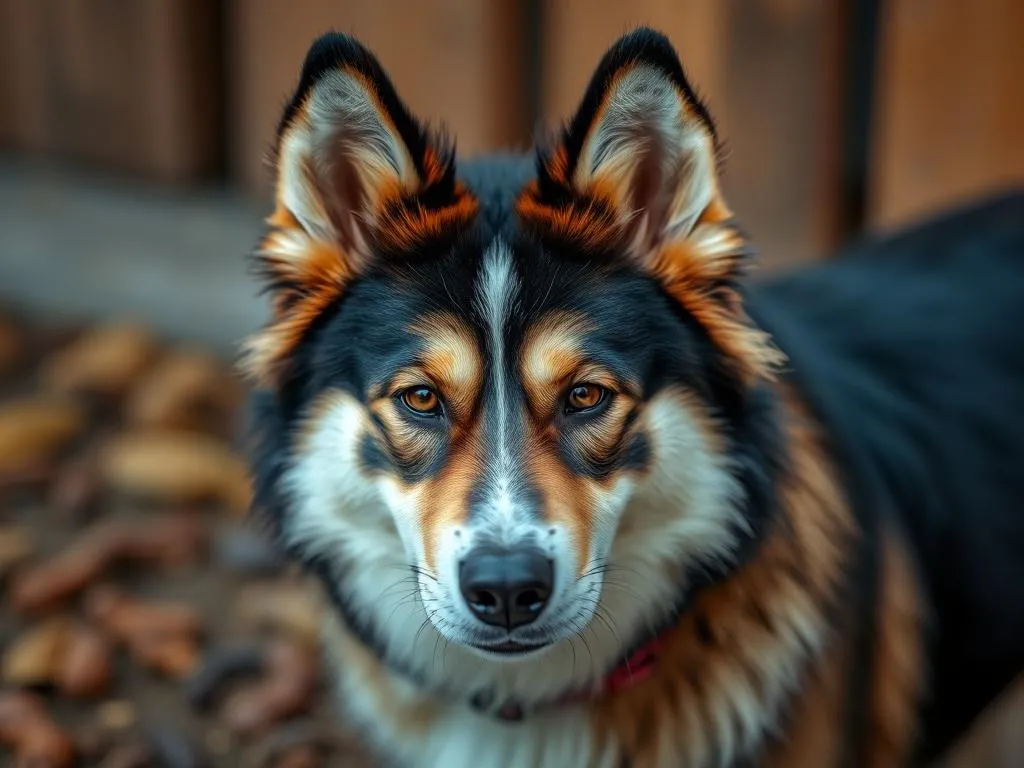
The story of Hachi, a dog renowned for its unwavering loyalty, has touched hearts across the globe. This remarkable tale, rooted in reality, highlights the profound bond between humans and their canine companions. Hachi has become a symbol of devotion, inspiring various adaptations in popular culture, including movies and books that recount his heartwarming journey.
But the key question remains: what breed of dog is Hachi? This article delves into Hachi’s breed, the characteristics of the Akita Inu, and the lasting impact of his story on society.
The Story of Hachi
Historical Background
Hachi’s story begins in the early 20th century in Japan. The real Hachi was an Akita Inu who lived in the Shibuya district of Tokyo. He was born in 1923 and was adopted by Hidesaburo Ueno, a professor at the University of Tokyo. Hachi quickly became a fixture at Shibuya Station, where he would wait for Ueno to return from work every day.
Tragically, in 1925, Ueno passed away unexpectedly, but Hachi continued to visit the station daily for nearly ten years, waiting for his beloved owner to return. This remarkable display of loyalty has made Hachi a legendary figure in Japanese culture and beyond, illustrating the deep emotional connections that can exist between dogs and their humans.
Hachi in Popular Culture
Hachi’s story has been immortalized in various forms of media, most notably in the 2009 film “Hachi: A Dog’s Tale,” starring Richard Gere. This film brought Hachi’s tale to a wider audience, showcasing his unwavering loyalty and the poignant bond he shared with Ueno. The movie has since become a classic, resonating with dog lovers and inspiring countless individuals to cherish their pets.
In addition to cinematic adaptations, Hachi’s legacy is celebrated in literature, art, and even statues located at Shibuya Station. These tributes serve as a reminder of the powerful impact of Hachi’s story on popular culture and the hearts of people around the world.
What Breed of Dog is Hachi?
Identifying Hachi’s Breed
Hachi is an Akita Inu, a breed known for its loyalty, intelligence, and strong protective instincts. The physical characteristics of the Akita Inu are striking and distinctive. Hachi was a large dog with a robust body, a broad head, and erect ears. His coat was thick and water-resistant, primarily featuring a white base with brown markings, a common coloration for the breed.
Characteristics of the Akita Inu
The Akita Inu is an impressive breed, with several key characteristics that set it apart:
- Physical Traits:
- Size: Akitas are large dogs, typically weighing between 70 to 130 pounds.
- Coat: They have a dense double coat that comes in various colors, including white, brindle, and various shades of red.
-
Features: Their eyes are small and triangular, giving them an alert expression.
-
Temperament:
- Loyalty: Akitas are famously loyal to their families, often forming strong bonds with their owners.
- Intelligence: They are highly intelligent, which can make training both rewarding and challenging.
-
Protective Nature: Akitas are naturally protective and can be wary of strangers, making them excellent guard dogs.
-
Health Concerns: Like many breeds, Akitas are prone to certain health issues, including hip dysplasia, autoimmune disorders, and certain types of cancer. Regular veterinary check-ups and a healthy lifestyle can mitigate some of these risks.
The Significance of Hachi’s Loyalty
Loyalty in Dog Breeds
Loyalty is a defining characteristic of many dog breeds, but few exemplify this trait as poignantly as the Akita Inu. Dogs are pack animals, and their loyalty often stems from their instinct to protect their family unit. The Akita’s loyalty is profound, often leading them to form deep attachments to their owners and families.
When comparing the loyalty of the Akita Inu to other breeds, such as Labrador Retrievers or German Shepherds, it becomes evident that each breed displays loyalty in its unique way. However, the steadfastness demonstrated by Hachi has set a benchmark for canine loyalty that resonates deeply with dog lovers everywhere.
The Impact of Hachi’s Story
Hachi’s story is more than just a tale of devotion; it serves as a powerful reminder of the bonds we share with our pets. His unwavering dedication has inspired countless dog owners to appreciate and nurture the loyalty exhibited by their own pets. The emotional impact of Hachi’s story transcends cultures, touching the hearts of people worldwide.
The psychological effects of Hachi’s tale can be seen in the way it encourages individuals to foster strong relationships with their dogs, promoting themes of love, companionship, and loyalty. Hachi’s legacy serves as a catalyst for conversations around the importance of responsible pet ownership and the deep emotional connections that can be formed with dogs.
Caring for an Akita Inu
Training and Socialization
Caring for an Akita Inu requires a commitment to proper training and socialization. Early training is crucial for establishing a well-behaved companion. Akitas are strong-willed and may exhibit stubbornness, so consistency and patience are key.
Effective training methods for Akita Inu include:
- Positive Reinforcement: Rewarding good behavior with treats and praise encourages learning.
- Socialization: Introducing your Akita to various people, pets, and environments helps them develop confidence and reduces fearfulness.
- Obedience Training: Teaching basic commands like sit, stay, and come is essential for safety and building a strong bond.
Health and Nutrition
Like all breeds, Akitas require a balanced diet to maintain their health. A high-quality dog food formulated for large breeds is recommended. Key considerations for an Akita Inu’s diet include:
- Protein: Ensure the food contains high-quality protein sources to support muscle development.
- Fats: Healthy fats are essential for maintaining a shiny coat and overall health.
- Vitamins and Minerals: Look for foods enriched with essential vitamins and minerals to support their immune system.
Common health issues affecting Akitas include hip dysplasia, autoimmune diseases, and skin conditions. Regular veterinary check-ups are vital for early detection and management of these concerns.
Exercise and Mental Stimulation
Akitas are active dogs that require regular exercise to stay healthy and happy. Daily activities should include:
- Walks: Aim for at least 60 minutes of exercise per day, which can include walks, playtime, and other activities.
- Fetch and Tug-of-War: Games that engage both their body and mind are ideal for keeping an Akita stimulated.
- Mental Challenges: Puzzle toys and obedience training can provide mental stimulation, preventing boredom and destructive behavior.
Mental stimulation is just as crucial as physical exercise for the Akita Inu. Engaging their minds through training and interactive play is essential for their well-being.
Hachi’s Legacy
Memorials and Tributes
Hachi’s legacy is celebrated across Japan and the world through various memorials and tributes. The most famous of these is the bronze statue located at Shibuya Station, which depicts Hachi waiting for his owner. This statue has become a popular meeting point and a symbol of loyalty and love, attracting visitors from all over the globe.
In addition to the statue, various events and festivals pay tribute to Hachi’s memory. The annual Hachi Festival celebrates his story with various activities, including dog parades and educational events focusing on responsible pet ownership and the bond between humans and dogs.
Lessons Learned from Hachi’s Story
Hachi’s story teaches us invaluable lessons about loyalty, love, and companionship. It reminds us of the importance of nurturing our relationships with our pets and recognizing the deep emotional bonds that can exist. Hachi’s unwavering devotion encourages us to reflect on our own connections with our dogs and to appreciate the loyalty they exhibit daily.
In a world where relationships can sometimes feel fleeting, Hachi’s legacy serves as a poignant reminder of the enduring love and loyalty that dogs can offer. His story continues to inspire individuals to cherish the companionship of their pets and to foster an environment of love and respect.
Conclusion
The story of Hachi, the Akita Inu known for his extraordinary loyalty, remains a powerful testament to the bond between humans and dogs. As we reflect on Hachi’s impact, it is essential to appreciate the loyalty exhibited by dogs in our lives. Whether it’s an Akita Inu or another breed, the love and companionship of our pets enrich our lives in countless ways.
As you ponder Hachi’s legacy, consider sharing your own experiences with dog breeds that exhibit similar loyalty. Each story contributes to the rich tapestry of human-animal relationships, reminding us of the remarkable impact our furry companions have on our lives.









